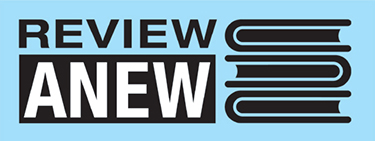Hallie Rich
48 Articles
From:
To:
Lawsuit Filed Over Cuts to IMLS, Federal Agencies
A multi-state coalition files lawsuit following week of rapid changes at IMLS.
Going, Going...Gone? | Editorial
Capturing and preserving information has long been part of the library mission. As the world grapples with the wide range of threats climate change presents to the environment, ecosystems, and society, we can make a difference by keeping people informed.
Building Bridges | Reflecting on Alan Inouye's Career as He Steps Down from ALA Public Policy Leadership
Alan Inouye has led advocacy and public policy for the American Library Association (ALA) since 2007, where he’s touched everything from E-Rate to copyright to ebook access, securing hundreds of millions of dollars in federal funding for libraries. His retirement from ALA this month marks a crucial moment for the association, which has weathered significant challenges in recent years and cannot afford to lose ground with relationships in Washington, DC, and across the broader library landscape.
National Museum and Library Services Board Weighs In
The National Museum and Library Services Board, which serves in an advisory capacity to the director of the Institute of Museum and Library Services (IMLS), pens a letter to new Acting Director Keith Sonderling outlining which functions it considers essential obligations of the organization.
What Happens to Libraries if IMLS Goes Away?
On Friday night, March 14, President Trump issued an Executive Order that called for the elimination of the Institute of Museum and Library Services (IMLS) and six other agencies. In FY24, the IMLS budget was $294.8 million, of which more than $211 million was dedicated to library services through the Library Services Technology Act (LSTA), the leading source of federal funding for America’s libraries. According to a statement from the American Library Association (ALA), “Libraries translate .003 percent of the federal budget into programs and services used by more than 1.2 billion people each year.”
LJ, SLJ, and APA Survey Confirms Digital Audio Dominance
Together with the Audio Publishers Association (APA), in September 2024 Library Journal and School Library Journal fielded a survey about audiobooks in the United States’ public libraries. Nearly 500 librarian respondents provided insight into audio format demand, budgeting, licensing terms, and selection influences.
Our Secret Weapon: Stories | Editorial
We cannot be caught flat-footed when library funding is called into question. Doing the work of capturing stories today will help ensure we’re prepared to deal with threats that we may face tomorrow.
The Bluest Eye by Toni Morrison | Review Anew
Morrison’s unflinching depictions imbue her characters with a richness and complexity that directs readers to regard them as worthy of attention and love. Even in the most painful scenes, she compels readers not to look away. An important text for generating discussion on race, culture, and U.S. society, this is an essential work for public, high school, and academic libraries.
Winding Down | The Last LibLearnX
Although considerably smaller than ALA’s Midwinter and LibLearnX conferences of the past, there was a palpable sense of community and nostalgia around the last midwinter gathering.
ALREADY A SUBSCRIBER? LOG IN
We are currently offering this content for free. Sign up now to activate your personal profile, where you can save articles for future viewing







